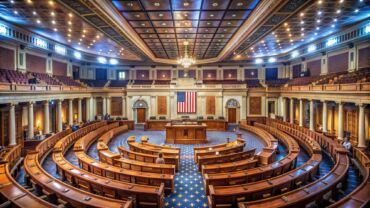CMS Letter: COVID-19 Guidance for Non-Federal Governmental Plans (June 5, 2020)
Available at https://www.cms.gov/files/document/COVID-19-Letter-to-Non-Federal-Governmental-Plans.pdf
CMS has issued a letter addressing COVID-19 guidance relevant to non-federal governmental plans. Here are highlights:
-
Diagnostic Testing. The letter explains that non-federal governmental plans, whether grandfathered or non-grandfathered, are group health plans subject to the FFCRA and CARES Act requirements to provide benefits for certain COVID-19 diagnostic testing without cost-sharing, prior authorization, or other medical management requirements (see our Checkpoint article). The letter encourages non-federal governmental plans to go further, however, and offer services related to the treatment of COVID-19 on the same basis.
-
Extended Timeframes. Drawing on a recent CMS bulletin, the letter “concurs” with recent DOL and IRS notices requiring health plans to extend certain deadlines—including those for HIPAA special enrollments, COBRA elections and premium payments, benefits claims and appeals, and requests for external review (see our Checkpoint article)—and notes that CMS will adopt a temporary policy of relaxed enforcement for plans providing the extensions. [EBIA Comment: Unlike plans subject to the DOL and IRS notices, CMS does not require non-federal governmental plans to provide deadline relief to participants and beneficiaries. Rather, CMS has simply encouraged the extensions and provided enforcement relief for plans that voluntarily comply.]
-
Telehealth. The letter strongly encourages plans to cover and promote telehealth and other remote care services even if the specific services covered are not related to COVID-19. It recommends that state and local authorities not take enforcement action against plans that make midyear changes to provide greater coverage for telehealth or for diagnosis or treatment of COVID-19 and encourages plans to promptly communicate such changes to participants and beneficiaries. CMS will not take enforcement action against plans that make these changes without the required 60-day notice of changes to summaries of benefits and coverage (SBCs) (see our Checkpoint article).
-
Prescription Drugs. Finally, the letter encourages plans that provide prescription drug benefits to lift fill restrictions when appropriate, and to monitor the Food and Drug Administration’s website for details on specific prescription drug shortages.
EBIA Comment: Sponsors of non-federal governmental plans and their advisors will want to take note of the letter’s clarifications regarding which COVID-19 relief is required, and which is merely encouraged. And all plan sponsors will be interested to know that the IRS, HHS, and DOL anticipate releasing additional guidance about the FFCRA and CARES Act. For more information, see EBIA’s Group Health Plan Mandates manual at Section XVI (“COVID-19: Mandated Coverage and Other Requirements”); EBIA’s COBRA manual at Section VI (“Special Issues: COBRA and COVID-19”); and EBIA’s HIPAA Portability, Privacy & Security manual at Section X (“Special Enrollment Rights”). See also EBIA’s ERISA Compliance manual at Sections XXXIV.F (“Timelines Under Group Health Claims Procedures”) and XXXV.E (“Timelines for Disability and Other Non-Health Decisions”), EBIA’s Health Care Reform manual at Sections XVI.H (“Updating the SBC: Notice of Material Modifications”) and XV (“Appeals Process and External Review Requirements”); and EBIA’s Self-Insured Health Plans manual at Section XI.E.5 (“Telemedicine”).
Contributing Editors: EBIA Staff.







